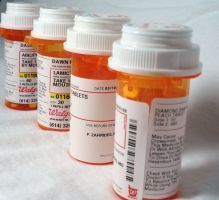James Gordon, author of “Unstuck” and Charles Barber, author of “Comfortably Numb” present some interesting statistics on antidepressants. However, for persons like myself who suffer from severe depression, some context is needed to their facts. An article in the Summer 2008 issue of “Johns Hopkins Depression and Anxiety Bulletin” fills in the blanks that leave people thinking that antidepressants aren’t effective at all. Excerpted from the article, “Report Card on Antidepressants” by J. Raymond DePaulo, Jr., M.D., are these paragraphs:
A study released last week reported that depressed patients put on antidepressants get better at only a slightly higher rate than those treated with a placebo, which is essentially a sugar pill. This is, of course, a potentially concerning finding for people like me, who prescribe antidepressants, and for those of you who take them.
The results, reported in the open-access journal “PLoS Medicine,” come from a combined analysis of 35 studies with more than 5,000 patients, evaluating four of the newer antidepressants–fluoxetine (Prozac), venlafaxine (Effexor), nefazodone (Serzone), and paroxetine (Paxil).
The new twist is that this report includes data from many studies that were conducted by the drug companies and filed with the U.S. Food and Drug Administration but never published in academic journals.
What the PLoS study found is that, on average, patients taking medication had a substantial response as measured by a depression rating scale. Whereas they started with a score of roughly 26 (on a 54-point scale, where higher means more depressed), they dropped after six weeks of treatment to about 16.
But the patients taking placebos also, on average, had a strong response, dropping to about 18.
However, the placebo picture was a bit more complicated. Unlike the antidepressants response, which did not vary based on how initially depressed patients were, the placebo response was strongest in the LEASED-DEPRESSED folks, dropping off in those who illness was more severe.
So here’s take-home message No. 1: Antidepressants showed a significant advantage over placebo for the severely depressed patients but not for the mildly and moderately depressed patients.
Maybe that’s not really so surprising.
It is well established that mild and moderate depression can respond to psychotherapy alone, without medication. For example, Dr. Michael Thase, a psychiatrist at the Western Psychiatric Institute, and his colleagues found in a 1997 study that the advantage of antidepressants added to psychotherapy only came when depression was more severe.
It is not unusual for a depressed patient of mine to come into my office sad and weepy, and leave after an hour feeling buoyed up. There is a sense of relief that comes from being with someone who understands and a sense of hope that comes from being with someone you feel has the power to make things better.
These are important aspects of what happens in psychotherapy, and they are likely important aspects of the placebo effect. Patients who receive placebos are being seen by medical staff and are getting some of that relief and some of that hope.
Sometimes people fail to realize that what medication does and what psychological factors do both have an impact on the brain. Dr. Helen Mayberg, now at Emory University, studies brain circuits in depression. She used a neuroimaging method to study metabolism across brain regions in patients who responded to Prozac and in those who responded to a placebo.
She found that, among the placebo responders, there were a number of specific regions with metabolic increases and others with metabolic decreases. These same changes were also seen in the Prozac responders, suggesting that this is what the brain needs to do to feel better, regardless of how it gests there.
But that’s not the whole story. Because there were also some changes unique to the Prozac responder brains, Mayberg and her colleagues speculate that these other changes might be important in maintaining longer-term response and preventing depression.
Indeed, to return to the PLoS study with which we started: It would be interesting to know what happened after the six weeks that most of the individual treatment studies lasted. Were the patients who responded to antidepressants more likely to stay well longer than those with a placebo response?
A recent study by Dr. Arif Khan and colleagues at the Northwest Clinical Research in Bellevue, WA, addresses exactly this question. They analyzed antidepressants studies in which drug and placebo were continued in responders for at least four months. The result: Placebo responders were more likely to suffer a recurrence of depression than antidepressant responders.
And now for take-home message No. 2: There still might be some advantage to antidepressants even for mild and moderate depression.
To read more Beyond Blue, go to www.beliefnet.com/beyondblue, and to get to Group Beyond Blue, a support group at Beliefnet Community, click here.

